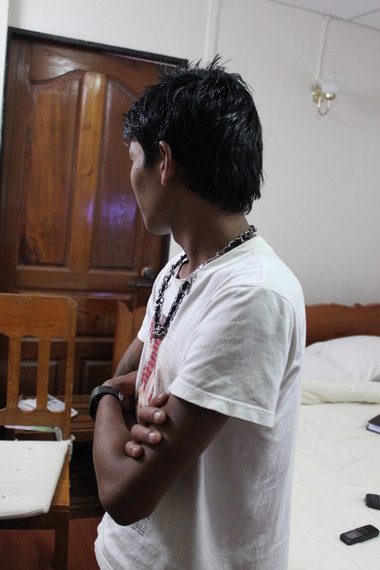
Calls are growing louder for a U.S. ban on Thai seafood imports amid shocking reports of slave labor used in the industry. But the United States is unlikely to take any major action against Thailand right now.
Outcry against Thailand's seafood industry has been growing after a number of reports of brutality against workers in that industry. Reports written by several international media outlets have uncovered debt bondage, brutal human rights abuses and modern slavery in Thailand's seafood industry. The abuses happen both on ships at sea and in seafood processing factories.
In response to these reports, Democrat Congressman Emanuel Cleaver recently wrote a letter to the U.S Food and Drug Administration and the U.S Department of Labor and called on the groups to take "administrative actions available" to punish American companies linked to slave labor.
U.S. Rep. Chris Smith, also the chairman of the House subcommittee on human rights, earlier this month echoed those sentiments. But in a follow up call Borderless News Online made to the lawmaker's spokesperson, the spokesman said there was no bill at this time. The spokesperson said the issue will likely be picked up in the next human rights subcommittee hearing.
Indeed, an all-out U.S. ban against Thai seafood is unlikely. Such a ban it would certainly hurt Thailand, the world's largest seafood exporter, but would also hurt U.S. seafood importers, as the United States comprises 40 percent of Thailand's shrimp exports. Washington knows that, and is unlikely to take any drastic measures.
For their part, major U.S. retailers are not concerned about an all-out U.S. boycott of seafood from Thailand, and some say that third-party monitoring of the industry is likely to improve.
But that may be easier said than done. Factories using slave labor that I have investigated know all the loopholes to avoid getting caught. Workers in factories that employ slave labor have told me factory audits are often announced ahead of time, giving floor managers ample time to sweep abuses under the carpet before auditors arrive.
Monitoring ships for human trafficking is even harder, especially since many are out to sea and far from any law enforcement. Human trafficking survivors have told me they've spent months at sea working as slaves without any interference from law enforcement or independent monitors.
Moreover, abuses in Thailand's seafood industry have been known to the United States for some time. The U.S. State Department's Trafficking in Persons report has for the last several years highlighted abuses in the Southeast Asian nation's seafood industry. But despite those reports, the United States has taken no substantial action.
The abuses are horrid. One survivor told me he witnessed the murder of a shipmate, who was shot in the chest and thrown overboard trying to escape slave labor conditions. The killing was a warning to others who might try to escape.
One woman in her 20s told me she had been held against her will and forced to work in a shrimp processing plant, after being duped into working for the company that forced her to work long hours for no pay. She was given such little food that she began passing out, and she knew that if she did not escape she might not survive. She scaled a wall and escaped the factory after being held there for six months.
Some survivors I have interviewed have been psychologically impacted by the horrible experience of being sold into slavery. Tonton, a Burmese man in his 20s I interviewed in the Thai border town of Mae Sot, just across the river from Myanmar, told me he had trouble forgetting the experience.
Many exploited and enslaved workers in Thailand's seafood industry come from neighboring Burma, in an effort to escape the dire poverty and economic hopelessness of their home country. Many are duped by "brokers" they trusted to take them across the border to jobs in Thailand, only to sell them to fishing boats and seafood processing factories. Many end up in debt bondage and must work for free to pay off the money owed to those who transported them a new job.
Despite these abuses, an all-out ban of Thai seafood remains unlikely. Moreover, such a ban could well hurt a lot of low-wage workers employed by honest Thai companies.
Experts on the ground tell me that a holistic approach is needed. Many auditors who evaluate seafood processing factories are trained to ask a very limited set of questions, such as whether workers are currently being abused. They do not ask, for example, whether the recruiter who got them the job is threatening them or their family for not handing over a chunk of the worker's wages, which many recruiters have been known to do. Auditors often focus on the factory grounds only, and workers are often afraid to tell them the truth.
But those with on-the-ground experience on how the human trafficking industry works said auditors should speak to members of the local migrant workers' community, outside the factory grounds, when possible. They should visit where workers are housed, gain intel about the trends and which factories are known to be abusive, and piece together a story about factories of concern.
Without changing the way audits happen, U.S., European and Asian companies sourcing seafood from Thailand will continue to run the risk of having slave labor on their supply chains.
